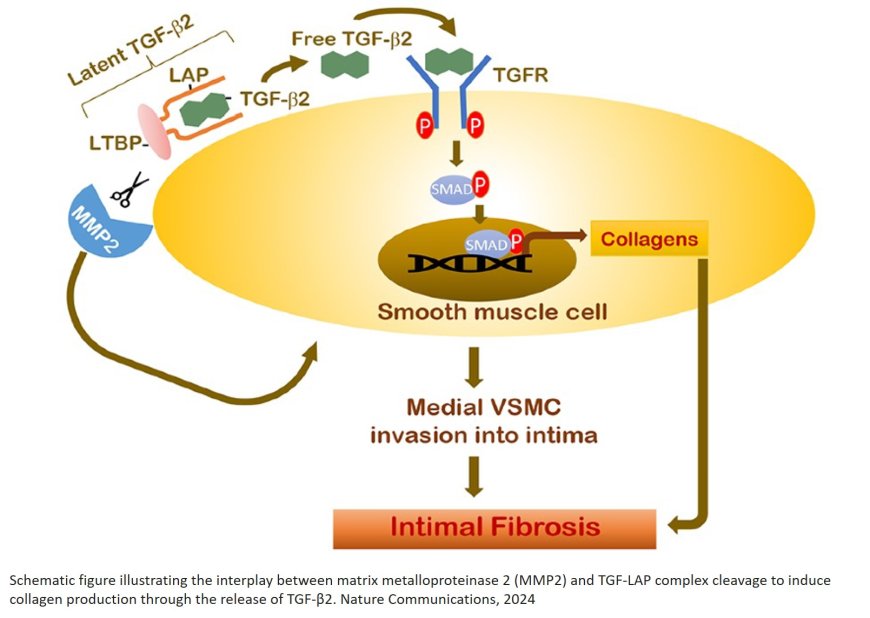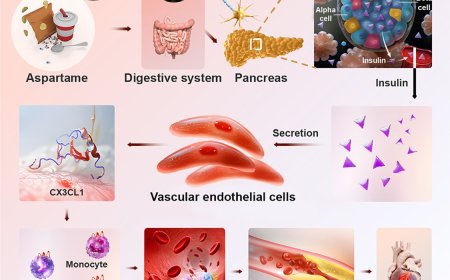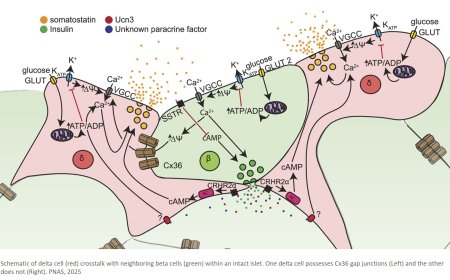A new mechanism for type 2 diabetes-associated atherosclerosis

People with type 2 diabetes have a higher risk of suffering a stroke, a heart attack and premature death due to atherosclerosis, but it has been unclear what the underlying mechanisms are. The researchers have mapped out differences in the atherosclerotic process in people who have type 2 diabetes and in people who do not have the disease. The study has now been published in Nature Communications.
It is estimated that 537 million people in the world have diabetes, and about 90 percent of them have type 2 diabetes. About 600,000 Swedes have diabetes, and type 2 diabetes accounts for around 85-90 percent of the cases.
"A stroke or heart attack often leads to reduced quality of life and, in the worst-case scenario, death. Since we know that people with type 2 diabetes have a higher risk of being affected, we set particularly ambitious treatment goals for patients with atherosclerosis and type 2 diabetes. Current treatment options mainly target risk factors such as blood lipids, blood pressure and lifestyle, regardless of whether the person has diabetes or not. Our new study provides additional evidence that people with type 2 diabetes may need new treatments that target specific molecular mechanisms of atherosclerosis," says the senior author.
The researchers have carried out detailed analyses of atherosclerotic plaques from a total of 219 individuals with cardiovascular diseases, and of these, 72 had type 2 diabetes. Atherosclerosis means that fats, cells, calcium and connective tissue have accumulated for a long time on the inside of the arteries, forming what are known as atherosclerotic plaques. The research team found that atherosclerotic plaques from patients with type 2 diabetes had lower levels of protective connective tissue in comparison with plaques from those without diabetes. The reason for this seems to be a lack of a specific growth factor called TGF-beta2. The research team also found that high blood sugar levels can be linked to a reduced ability to form protective connective tissue in the atherosclerotic plaques, which leads to an increased risk of stroke or heart attack.
"High blood glucose levels were associated with lower levels of protective proteins in the atherosclerotic plaques, which increased the risk of cardiovascular complications over time. The finding suggests that it is important for people with type 2 diabetes to keep their blood glucose levels under control to reduce the risk of cardiovascular disease, and that poor glycemic control may reduce the body's ability to produce protective proteins in the atherosclerotic plaques," says the author.
In future studies, the researchers are planning to investigate how this knowledge can be used to develop new treatments for people with type 2 diabetes that can prevent cardiovascular disease.












